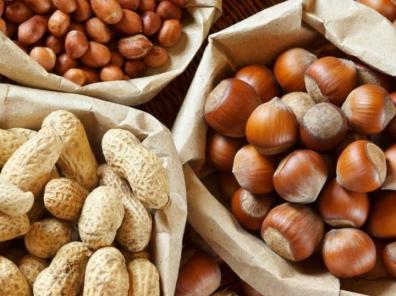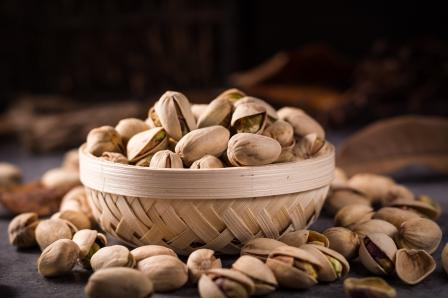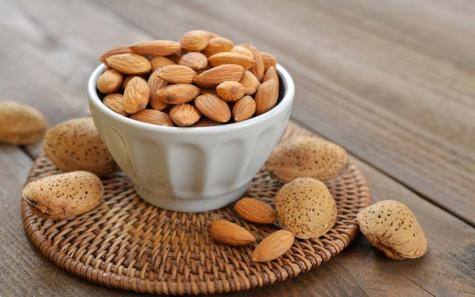Macadamia nuts, revered for their buttery flavor and creamy texture, have gained popularity as a versatile ingredient in both culinary and wellness realms. Native to Australia but now grown in various parts of the world, macadamia nuts are not only delicious but also packed with essential nutrients. Join us on a journey to explore the myriad benefits of macadamia nuts, their culinary applications, and the sustainable practices that ensure their cultivation for generations to come. Nutritional Profile: Macadamia nuts are a powerhouse of nutrients, offering a unique combination of healthy fats, vitamins, and minerals. Rich in monounsaturated fats, macadamias are known to support heart health by lowering cholesterol levels and reducing the risk of cardiovascular diseases. Additionally, these nuts are a good source of antioxidants, including vitamin E, which helps protect cells from damage caused by free radicals. Furthermore, macadamia nuts contain essential minerals such as magnesium, copper, and manganese, which play a crucial role in various bodily functions. Magnesium, for example, supports muscle and nerve function, while copper aids in the production of collagen and red blood cells. Manganese, on the other hand, serves as a cofactor for several enzymes involved in metabolism and antioxidant defenses. With a moderate amount of protein and dietary fiber, macadamia nuts can also contribute to satiety and digestive health. Health Benefits: Consuming macadamia nuts as part of a balanced diet can yield numerous health benefits. The monounsaturated fats present in these nuts have been linked to a reduced risk of heart disease and stroke. Studies suggest that incorporating macadamia nuts into the diet can help improve cholesterol levels, particularly by raising HDL (good) cholesterol while lowering LDL (bad) cholesterol. Moreover, the antioxidants in macadamia nuts play a vital role in combating oxidative stress and inflammation in the body.
.
By neutralizing free radicals, these antioxidants help protect cells from damage and reduce the risk of chronic diseases such as cancer and diabetes. The anti-inflammatory properties of macadamia nuts may also benefit individuals with conditions like arthritis and inflammatory disorders. Culinary Uses: In the culinary world, macadamia nuts are prized for their rich, buttery flavor and creamy texture, making them a popular ingredient in both sweet and savory dishes. From baked goods like cookies, cakes, and muffins to savory dishes like salads, stir-fries, and sauces, macadamia nuts add a delightful crunch and nutty aroma to a wide range of recipes. One of the most famous applications of macadamia nuts is in nut butter, where the nuts are blended into a smooth paste that can be spread on toast, drizzled over oatmeal, or used as a base for sauces and dressings. Macadamia nut butter is a decadent and nutritious alternative to traditional peanut or almond butter, offering a unique flavor profile that pairs well with both sweet and savory ingredients. For those with a sweet tooth, macadamia nuts shine in desserts like decadent brownies, creamy cheesecakes, and indulgent truffles. Whether chopped and folded into cookie dough or ground into a fine powder for baking, macadamia nuts lend a luscious richness and depth of flavor to all kinds of sweet treats. Their versatility extends to ice creams, granolas, and energy bars, where they provide a satisfying crunch and a boost of nutrition. Sustainable Practices: As the demand for macadamia nuts continues to grow, sustainable practices are essential to ensure the long-term viability of macadamia orchards and the preservation of natural ecosystems.
..
Sustainable macadamia farming involves practices that promote soil health, water conservation, biodiversity, and fair labor standards while minimizing the use of pesticides and chemicals. One of the key principles of sustainable macadamia farming is agroforestry, where macadamia trees are integrated with other crops or plants to create a diverse and resilient ecosystem. This approach helps improve soil fertility, increase crop yields, and provide habitat for beneficial insects and wildlife. By planting cover crops, implementing water-efficient irrigation systems, and practicing organic farming methods, macadamia growers can minimize their environmental impact and contribute to the health of the planet. Additionally, sustainable macadamia farming prioritizes social responsibility by ensuring fair wages, safe working conditions, and community engagement. By supporting local economies, investing in education and training programs, and promoting gender equality in the workforce, sustainable macadamia production can have a positive impact on the livelihoods of farmers and their communities. Conclusion: From their nutritional benefits and culinary versatility to the importance of sustainable farming practices, macadamia nuts offer a wealth of opportunities for health-conscious consumers, food enthusiasts, and environmentally conscious individuals.
…
By incorporating macadamia nuts into your diet and lifestyle, you can enjoy their delicious flavor, reap their numerous health benefits, and support sustainable agriculture that nurtures both people and the planet. Let macadamia nuts be your key to unlocking a world of flavor, wellness, and sustainability. Key Points to Remember: 1. **Nutritional Profile**: Macadamia nuts are rich in monounsaturated fats, antioxidants, vitamins, and minerals, making them a nutrient-dense food choice that can support heart health, reduce inflammation, and provide essential nutrients for overall well-being. 2. **Health Benefits**: Incorporating macadamia nuts into your diet may help improve cholesterol levels, reduce the risk of heart disease, and combat oxidative stress and inflammation in the body. The anti-inflammatory properties of macadamia nuts can be particularly beneficial for individuals with conditions like arthritis. 3. **Culinary Uses**: Macadamia nuts can be used in a variety of culinary applications, from baking and cooking to making nut butter and desserts. Their rich, buttery flavor and creamy texture make them a versatile ingredient that adds depth and richness to both sweet and savory dishes. 4. **Sustainable Practices**: Sustainable macadamia farming practices focus on promoting soil health, water conservation, biodiversity, and fair labor standards. By adopting agroforestry, organic farming methods, and social responsibility initiatives, macadamia growers can minimize their environmental impact and contribute to the well-being of local communities.




Your comment submitted.